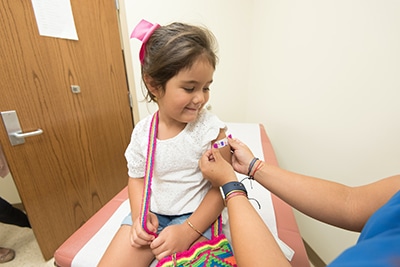As a foster parent, there are certain rules and regulations that you must follow in order to provide a safe and nurturing environment for your foster child. Issues and complications can come up while raising foster children, so it is important to be aware of what you are not allowed to do. There are a lot of activities that foster parents may think is okay, but would result in a child’s caseworker or child protective services getting involved.
When a foster parent breaks the rules, they can face serious consequences including revocation of foster parenting rights and even jail time. It is, therefore, important to become familiar with these guidelines before you commit to becoming a foster parent or while you are already raising a foster child. These guidelines can help protect both the foster parent and the child’s rights while also ensuring that the best interests of the child remain at the forefront.
Here are some of the most common things foster parents don’t think about, that violate foster care system rules:
- Sharing your foster children’s names or photos on social media
- Leaving a foster child with an unapproved babysitter
- Refusing to vaccinate foster children
- Leaving foster children at home without adult supervision
- Allowing co-sleeping arrangements with a foster child
- Altering the appearance of a foster child without permission
- Moving to another state or country
- Allowing foster children to partake in activities that are considered to be dangerous
- Taking your foster child’s phone away from them
1) Sharing Your Foster Child on Social Media
Why Sharing Your Foster Child on Social Media is Not Okay
Sharing your foster child’s pictures or name on social media might seem like a harmless or even affectionate action, but it can have serious implications on a foster child’s privacy and safety.
The key reason for this prohibition is the child’s right to privacy. Unlike the children of biological parents, foster children have a right to control their own personal information, including their images and names. Circulating this information on social media platforms can infringe upon this right, and potentially expose them to unwanted attention or even nefarious individuals.
In addition, posting photos or names could disclose the child’s foster status, which may lead to stigmatization or bullying. This could be particularly harmful considering the emotional traumas many foster children have already endured. Therefore, it’s vital to respect these rules and guidelines to ensure the safety and well-being of your foster child. It’s also a reminder that as foster parents, our actions should always prioritize the best interests of the child over the desire to share personal accomplishments or milestones on social media.
2) Leaving Foster Children With Unapproved Babysitters
Why Leaving Foster Children With Unapproved Babysitters is Not Okay
Entrusting a foster child to an unapproved babysitter may seem like a practical solution in a pinch, but it’s important to understand that doing so violates foster care regulations, and for good reasons.
Firstly, the safety of the foster child is paramount. Babysitters or any individual who has direct contact with the foster child must undergo a thorough background check to ensure the child’s safety. This check includes screening for any criminal records, a history of physical or emotional abuse, and other relevant information. An unapproved babysitter, regardless of how well-known they may be to the foster parents, will not have undergone this crucial process – presenting potential risk to the child.
Secondly, there’s a matter of accountability. Approved babysitters are trained to meet the unique needs of foster children, often undergoing specific training related to trauma-informed care. They are held accountable by the foster care agency and are expected to uphold the agency’s standards regarding the child’s care. However, this level of accountability does not exist with unapproved babysitters.
Lastly, leaving a foster child with an unapproved babysitter can inadvertently violate the child’s privacy. Confidential information about the child’s background, current situation, and foster care status should only be shared with approved and authorized individuals. An unapproved babysitter is not privy to this information and therefore, the foster child’s privacy can be compromised.
Therefore, while it may seem inconvenient at times, it is crucial for foster parents to only leave their foster children with approved babysitters. This ensures not just compliance with the rules, but more importantly, the safety, well-being, and privacy of the foster child.
3) Refusing To Vaccinate Foster Children
Why Refusing to Vaccinate Foster Children is Not Okay
The refusal to vaccinate foster children can be a controversial topic. However, within the confines of the foster care system, choosing not to vaccinate is not an option, and here’s why.
First and foremost, vaccinating children is a fundamental aspect of public health. Vaccines protect children from a wide array of serious or potentially fatal diseases. Foster children, like all children, have a right to this protection. By ensuring that foster children are up-to-date on their immunizations, foster parents are playing a crucial role in maintaining the overall health of the child, as well as the public health of the community.
Secondly, the decision to vaccinate a child in foster care is not typically within a foster parent’s discretion. This is because medical decisions for foster children are usually made by a combination of the biological family (when parental rights are still intact), the child’s caseworker, and the court system. This is to ensure that decisions are made in the best interest of the child’s health and safety.
Lastly, vaccination requirements are often a part of the licensing process for foster homes. Foster care agencies and the state have a responsibility to ensure the safety and well-being of all children in the foster care system. This includes preventing the spread of preventable diseases within the foster care system.
4) Leaving Foster Children at Home Without Adult Supervision
Why Leaving Foster Children at Home Without Adult Supervision is Not Okay
Leaving a foster child unsupervised at home, even if they are teenagers, is not acceptable within the parameters of foster care, and for several reasons.
Firstly, the nature of a foster family involves the provision of a safe and supportive environment for children who, in many cases, have previously experienced neglect or abuse. Even for teenagers, being left alone at home can potentially trigger feelings of abandonment or anxiety, which can lead to behavioral issues or emotional distress instead of a trusting and respectful relationship.
Secondly, safety is a paramount concern in foster care. Adult supervision ensures the prevention of accidents or dangerous situations that might put the child’s safety at risk. Teenagers, despite their growing independence, can still find themselves in circumstances where adult guidance or intervention is required. Without an adult present, they might take unnecessary risks or make decisions that could endanger their safety.
Moreover, leaving a foster child alone at home can be a breach of trust from the child’s perspective. A key factor in successful foster care is building a sense of trust and security with the child. By leaving them alone, the child might feel that their care and safety are not a priority, thereby damaging the trust-building process and potentially exacerbating any existing attachment or trust issues.
Lastly, it’s important to consider the legal implications. The foster care system is regulated by state laws and agency policies which generally stipulate that foster children should not be left without adult supervision. Non-compliance with these regulations can lead to serious consequences, including the potential loss of foster care licensure.
In conclusion, while fostering a teenager does indeed involve fostering independence, it’s essential that this is done within the context of a safe, supervised environment. Balancing the teenager’s need for autonomy with their need for supervision and support is a crucial aspect of effective foster care.
5) Allowing Co-Sleeping Arrangements With a Foster Child
Why Allowing Co-Sleeping Arrangements with a Foster Child is Not Okay
Allowing co-sleeping arrangements with a foster child is strongly discouraged within the foster care system, regardless of the child’s age or the parents’ personal beliefs on the matter. There are a few key reasons for this.
Firstly, the primary focus of foster care is to provide a safe, secure, and stable environment for the child. A part of creating this safe environment involves establishing firm boundaries between the child and the foster parents. Co-sleeping muddles these boundaries and can create an unsettling dynamic for the child. It can also lead to attachment issues, especially in younger children, making the inevitable transition to their own sleeping space or potentially moving on to another home a more traumatic experience.
Secondly, many children in foster care come from backgrounds of trauma and abuse, including sexual abuse. Co-sleeping can create confusing situations for these children, inadvertently triggering past traumas. It’s absolutely essential in such cases to ensure the child feels safe and secure, which includes having their own personal space to sleep.
Thirdly, state laws and regulations around foster care often explicitly rule against co-sleeping. Foster parents are required to provide a separate bed and sleeping area for each foster child in their care. Non-compliance with these rules can lead to a loss of foster care licensure.
Lastly, co-sleeping arrangements can inadvertently lead to situations of risk, such as accidental smothering or falling out of bed. While these risks are present for all children, they are particularly heightened for foster children who may already be dealing with trauma, anxiety, or other emotional issues.
In conclusion, while co-sleeping may seem like a harmless practice, especially with younger children, it’s a practice that foster parents should avoid. Instead, foster parents should focus on creating a safe, secure, and independent sleeping environment for each child in their care.
6) Altering The Appearance Of a Foster Child Without Permission
Why Altering the Appearance of a Foster Child Without Permission is Not Okay
Altering the appearance of a foster child without the necessary permissions is strongly discouraged within the foster care system for several reasons.
Initially, it’s important to understand that foster children are often dealing with considerable upheaval and change in their lives. Changing their appearance (such as a significant haircut or new piercings) could add another layer of disruption to their already unsettled existence. These alterations, while might seem insignificant to the foster parents, could potentially be distressing or unsettling for the child.
Secondly, cultural sensitivity plays a part. Some foster children come from cultures or backgrounds where certain hairstyles, clothing choices, or other aspects of appearance have significant meaning or importance. It’s crucial to respect these cultural norms and practices to maintain the child’s sense of identity and cultural connection.
Furthermore, depending on the status of parental rights, making major changes to a child’s appearance without consent from the child’s biological parents could be seen as a disregard for these rights. Unless parental rights have been terminated, the biological parents often retain some decision-making authority over certain aspects of their child’s life. Making significant changes without their consent may strain the relationship between the foster parents and biological parents, leading to potential legal implications.
Lastly, altering a child’s appearance without consent can be seen as overstepping by foster parents. The primary job of a foster parent is to provide a safe, stable, and nurturing environment, not to make major decisions that might affect the child’s identity or self-expression.
In conclusion, any decisions that significantly alter a foster child’s appearance should be made with the appropriate permissions, taking into account the child’s feelings, cultural background, and the legal rights of the biological parents. This helps to ensure the child’s well-being and stability and maintains the integrity of the fostering relationship.
7) Moving To Another State or Country
Why Moving to Another State or Country While Raising a Foster Child is Not Permitted
Moving to another state or country while raising a foster child is generally not permitted due to several reasons structured around the child’s welfare, legal considerations, and stability.
Firstly, one of the main objectives of the foster care system is to provide a stable environment for the child. Uprooting a child from their community, school, and support system can add another layer of instability to their already disrupted lives. The child might have established connections with local resources such as therapists, social workers, or friends, and moving can disrupt these crucial support networks.
Secondly, foster care regulations and laws vary from one jurisdiction to another. A foster parent licensed in one state or country may not meet the requirements in another, making a move legally complex. Moreover, the child’s case remains under the jurisdiction of the state that placed them in foster care, meaning that any significant decisions, including moves, need to be approved by that state’s child welfare agency.
Thirdly, if the foster child’s biological parents still have legal rights, moving far away could potentially interfere with visitation schedules and the child’s ability to maintain a relationship with their birth parents. This can be detrimental to the child’s emotional well-being and can also lead to legal complications.
Finally, international moves have additional layers of complexity, including issues around immigration and the child’s legal status. Most countries have strict regulations about minors crossing international borders, especially in foster care situations.
While a move might sometimes seem necessary or advantageous from the foster parents’ perspective, it’s essential to prioritize the needs, rights, and best interests of the foster child. Any decisions about moving should be made in consultation with the relevant child welfare agencies and legal professionals.
8) Allowing Foster Children to Partake in Activities That Are Considered To Be Dangerous
Why Allowing Foster Children to Partake in Activities That Are Considered To Be Dangerous is Not Okay
Engaging foster children in activities such as snow skiing, which are often considered dangerous, is generally discouraged within the foster care system. This is primarily due to the inherent risks involved, the legal considerations, and the potential psychological implications for the child.
Firstly, activities like snow skiing encompass a degree of risk and can potentially lead to injuries. While these activities can be exhilarating and beneficial from a fitness perspective, the risk of injury is a serious concern. For foster children, who might already be dealing with significant emotional and physical challenges, any additional injury or trauma can have a profound impact on their overall well-being.
Secondly, from a legal perspective, foster parents have a duty of care towards their foster children. If a child is injured while participating in a dangerous activity, it could raise questions about the foster parents’ judgement and potential negligence, which could lead to legal complications.
Thirdly, engaging in dangerous activities could potentially trigger anxiety or fear in foster children, who may already be dealing with these emotions due to their circumstances. They might feel pressured to participate out of a desire to please their foster parents or fit in with their new family, even if they’re scared. This could add another layer of stress to their lives, which is not conducive to their healing and emotional development.
While it’s important for foster children to have enriching experiences and activities, the welfare and safety of the child are paramount. Therefore, foster parents should carefully evaluate the risks and benefits of any activity. If a potentially dangerous activity is even considered, it should only be pursued with the appropriate precautions, professional supervision, and most importantly, the child’s enthusiastic consent.
9) Taking Your Foster Child’s Phone Away From Them
The Right of Foster Children to Make and Receive Phone Calls in Private
Foster children, like any other child, have the right to personal privacy, which extends to their communication, including making and receiving phone calls in private. This is a fundamental right that is backed by law and is designed to ensure the child’s emotional well-being, sense of personal autonomy, and to maintain their connections with their biological family and friends.
Firstly, privacy in communication can help foster children express their feelings and thoughts more openly, fostering emotional health. It can also contribute to their sense of personal autonomy, an essential aspect of development and self-esteem. Knowing that they can have private conversations without fear of eavesdropping or interference can enhance their confidence and trust in their foster home environment.
Secondly, maintaining connections with their biological family and friends is crucial for a foster child’s emotional stability and sense of identity. Phone calls often serve as a primary mode of maintaining these connections. Taking away their phone or monitoring their calls could disrupt these connections, causing further emotional distress and potentially leading to a sense of isolation.
Foster parents should respect the privacy of their foster children when they are making or receiving phone calls. Infringing on this right not only disrupts the emotional well-being of the child but could also lead to legal implications. As custodians, foster parents’ role should be to create a nurturing and respectful environment where the child feels safe and validated.
Ready To Become a Foster Parent?
Alba Care Services is The Premier Local Foster Care Agency in California
While foster parents are not allowed to make certain decisions for their foster children, they play an important role in providing a safe and nurturing home environment. Therefore, it’s essential that any potential foster parent is aware of the challenges and complexities involved in fostering.
Alba Care Services is one of California’s premier foster care agencies, dedicated to making the lives of children brighter. We provide comprehensive services and support for potential foster parents, including training and preparation to ensure that they are knowledgeable and well-prepared for the journey ahead, and can secure their foster care license.
We understand that becoming a foster parent can seem overwhelming, which is why we strive to create an environment of support and trust along with providing any necessary resources. Our team of experienced social workers will guide you through every step of the process while keeping your family’s needs at the forefront.
At Alba Care Services, we are committed to making our community a better place and value the commitment of all foster parents who choose to open their hearts and homes to children in need. If you’re ready to take on this rewarding challenge, contact us today for more information! We look forward to hearing from you.
Frequently Asked Questions
Your foster care questions get answered by a foster agency in California!
What are the disadvantages of being a foster parent?
Becoming a foster parent, while rewarding, has its own set of challenges. The emotional strain associated with caring for children who have often experienced trauma can be taxing. Children coming into foster care usually have a level of emotional, educational, or behavioral issues that can require significant time, patience, and understanding. Foster parents also need to navigate the complexities of the foster care system, including dealing with social workers, court systems, and biological families which can be stressful. There are also financial considerations; while foster parents receive a stipend to help cover the child’s expenses, it may not always cover all the costs involved.
Can foster parents take your phone?
While foster parents are in charge of maintaining a safe and nurturing environment, they must also respect the privacy rights of foster children. These rights include the use of personal devices, such as mobile phones. Legally, foster parents are not permitted to confiscate or monitor the personal phone of a foster child. The child’s right to privacy, including the ability to make and receive calls in private, is protected by law. However, like any good parent, foster parents are encouraged to provide guidance and set reasonable boundaries regarding phone usage, especially when it comes to issues of online safety and appropriate use.
Can you drink around foster kids?
While there are no explicit laws prohibiting foster parents from consuming alcohol in the presence of foster children, it’s essential to consider the potential impact on the child. Many foster children come from environments where substance misuse was a problem, and seeing a foster parent consume alcohol can trigger traumatic memories. Further, it’s imperative for foster parents to always be capable of providing a safe, stable environment, which can be compromised if alcohol consumption leads to impairment. Therefore, while occasional, moderate drinking may be permissible, it’s generally advised to exercise discretion and prioritize the child’s well-being and comfort.
Can foster parents hug their foster children?
Yes, foster parents can and should show affection to their foster children in ways that are appropriate and comfortable for the child, such as hugging. It’s important to remember that many of these children may come from environments where they were not shown consistent or healthy affection, so it’s crucial to establish trust and build a warm and secure environment. However, always respect the child’s personal space and comfort levels. Some children may not be comfortable with physical contact initially, and their boundaries should be respected. Affection should always be about meeting the child’s emotional needs and should be given with sensitivity to their personal history and feelings.







